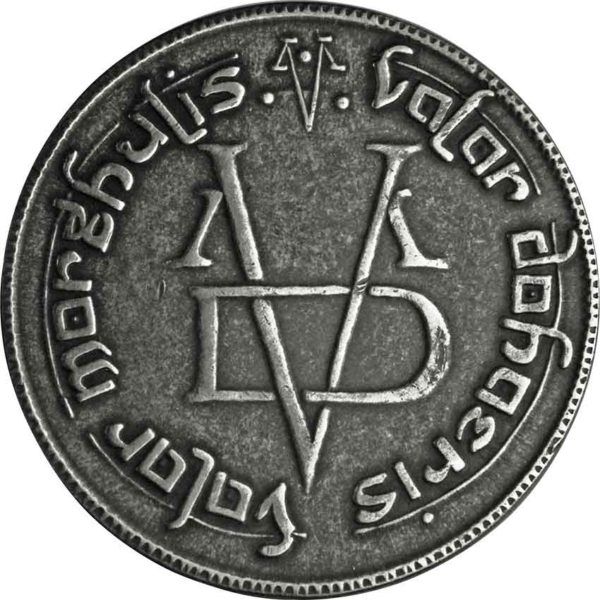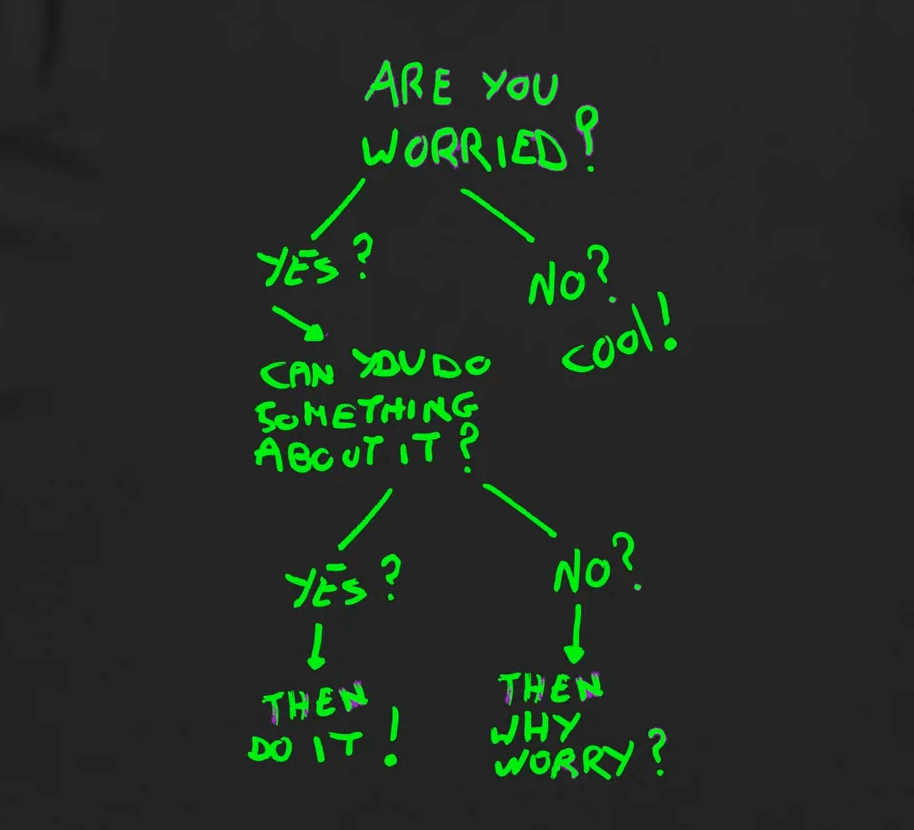“Give me a lever and a place to stand, and I will move the world.”
Archimedes (apocryphal)
When I was a kid growing up in New Jersey, all I ever wanted was to get out, across the river to the bright lights big city. I assumed that New Yawk City was the place that moves the world, because what else would a Jersey kid think amirite? And I loved everything about living there: I loved the hard work and the harder play, the high stakes and the almost tangible power and raw human energy that buzzed through the canyons between the skyscrapers. But after starting my career in “high” finance, I was disappointed in the financial engineering that passed as “creation” in that industry, and by 1999 it was obvious that the future was really being created across the country, in Silicon Valley.
So I headed West, searching for an industry that builds levers to move the world, searching for my place to stand. About a decade in, people began to tell me that my career path looked a little weird. From leveraged buyout lawyer in NYC to startup counsel in Silicon Valley to Korean venture capitalist to Fortune 100 corporate deal maker. And then it just kept getting weirder: international marketing, developer relations, enterprise product development, startup founder, BigTech product manager, startup sales manager and more. Not content with the variety of roles, I also wandered across sectors and products: enterprise hardware, metaverse consumer software, adtech, content moderation systems, maps, devops SaaS ….
Oh, and then I got sick of tech and ran for political office … now that was a weird move. But not to me, still just trying to understand what, if anything, moves the world in a better direction. Campaigning was a deeply moving experience for me, as I’m sure it is for any child of immigrants. I learned a lot, but the long and the short of it here is just that the political industry isn’t a place I can stand.
When I look back on it all, I feel lucky to have started my career in tech during that first decade from 1999-2008, before the global financial crisis, before BigTech was a thing … and maybe the last time we could have avoided the consequences we’re living out today. The dreams were big, the schemes were fun, and the common ambition was to put a dent in the universe with technology so good it seems like magic. The “why” behind this sparkling ambition was often unspoken, but I never thought it was about the money. Most of my friends in tech thought it was wonderful to see explosions of wealth of course, but we weren’t in technology to play the lottery, we were in it because we loved technology.
We were mostly dorky kids who were lucky enough to have access to an Apple ][ or Commodore 64 in middle school or high school, we played Atari and Intellivision, we wrote our first programs in BASIC and we fell in love with the future. And though we might have loved technology for different reasons, I think the common thread was that we loved what technology could do for humanity. We loved the spirit of innovation for its delight, not the dollars. We loved the fun that tech could add to our lives.
So the place where I stood in the best years of my first decade in tech was in San Francisco, at a company called Linden Lab, and we tried to move the world with Second Life. Enough has been written about Second Life, I don’t like to add to the noise. But I can’t say enough about the company we “Lindens” called “the Lab,” especially now that people are recognizing Second Life as an OG when they talk about “the metaverse” today …
Of course the product innovation was fascinating, but even more than that, I appreciate the workplace innovations we implemented at the Lab. Many of these are lost already in the sands of time, and frankly not all of our innovations were good ideas, but we had an authentic commitment to transparency, openness, and trying new ways to enable emergent bottoms-up innovation rather than top-down command-and-control management. We had open floor offices because it flattened hierarchy, not to save costs on real estate. We had snacks and games because we genuinely liked to have fun with each other, not as a nefarious scheme to keep overgrown adolescents at work. We had peer bonuses as a bonding experience, not as a competition for brownie points in the next performance review. We experimented in democratic decisionmaking, as messy as any experiment in democracy. We had remote offices, work from home, chat and video collaboration before any of these things were regarded as rational costs for a startup.
The Lab was also fearless with new business models, defining and implementing product lines in a way that felt like feeling around in the dark back then, but now seem prescient. “Freemium” as an acquisition strategy, the power of subscription metrics, data-driven decisions, SaaS-like pricing and practices before SaaS was a thing, defining product management roles before the internet industry had standardized skills for the role. We didn’t invent any of these by ourselves, but they were all relatively new business practices in our context.
So we endlessly experimented and adopted internal management and business practices on the fly while also attempting a product so ridiculously difficult that the largest technology companies in the world continue to fail today in their modern attempts to replicate the possibilities we demonstrated fifteen years ago. Maybe the only way we were old-school was that we built a profitable business, even though many companies had already amply demonstrated that tech investors prefer a fanciful growth story to the reality of profitable results.
[I’m leaving out the best part about the Lab: I could write a book about the people, but to even begin that here would be to raise uncontrollable emotions that are not at all the point here. Suffice to say that to this day I feel a bond with every Linden, past and present.]
What I realize now was that rather than being ahead of its time, the Lab was at the end of an era, before technology became Big Tech. The people that first populated Silicon Valley with technology workers were geeky idealists. Many of them, especially those who entered the scene from San Francisco, descended from a local cultural heritage of hackers and pranksters, the kind of Merry Pranksters that gave rise to the Cacophony Club and Burning Man – a culture of anti-authoritarianism, a community of individualists, a spirit of creativity and freedom and fun.
After the global financial crisis, for a variety of reasons, that culture gave way to people who … well, let me not judge any person, because we all live in glass houses, but looking at where we are today … the legacy of my last decade or so in technology is not about any of that spirit from my first decade. Too many technologists began to insist that technology could lead humanity, going so far as to believe in the inevitability of technological progress as if it were some natural force more powerful than the needs of humanity. And so we got surveillance capitalism, walled gardens, dark patterns, monopolistic rent-seeking, more and more exploitative and community-destroying business models and practices, and ever bigger and bolder next-gen Ponzi plays. None of those are technology; they are instead the social and economic results of favoring technology over humanity.
I’m an old man now, perhaps just yelling at the clouds. Sure, sure, I understand that some kind souls will object that I’m not that old, that there’s plenty of life ahead, plenty to do, plenty to dream. But see, I don’t think there’s anything to object to, I don’t think there’s anything wrong with being old. There are a lot of things that I see and understand now that I simply could not have understood with less experience in life. That experience – not just the technology and business experience, but ALL of the experience of living – is the lever that I’ve sought all my life.
And now I’d like to share the leverage of experience with as many people as I can who might use it to move the world in the right direction.
And the place to stand? Well, it has to be San Francisco. There are places in the world that I love more, but there is no other place that I know with that particular spirit of love for humanity over technology. That spirit has been dominated of late, it has been beaten, it has been bruised … but it is not gone – I just know it because I have been around long enough to know it. San Francisco is currently in the worst shape that I’ve seen in my quarter-century in California, so bad that it almost reminds me of New York City in the ’70s and ’80s … a place that we Jersey kids regarded as a bankrupt disaster, only later to realize that we should have spent way more time trying to get into CBGB. What I’m saying here is that we’ll later remember now as the time when San Francisco was authentically cool.
So – this is all my way of saying that I’m going to be spending my time in San Francisco working on technology startups in generative AI, virtual currencies, and metaverse technologies. I have the idealism of my first decade in tech, the experience of my second decade, and the determination to put humanity over technology. Most importantly, I have a few like-minded friends figuring out how to work together, and we have room for more.
If you are looking for a lever and a place to stand, let’s talk 🙂 A ping on LinkedIn is best if you don’t already have other contact info.








